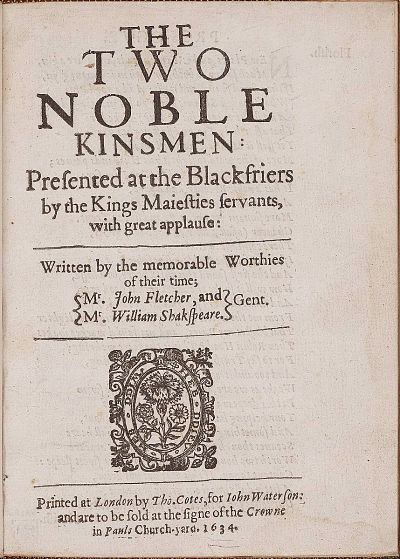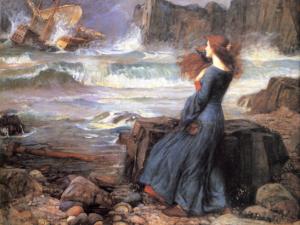If we eliminated the popular music, theater, and video dealing with romantic love, there would be little left. This would strike our ancestors as odd. They valued friendship at least as much as romantic love and certainly more than erotic love. In fact, they would have valued the duty and love owed to any guest as highly for a grownup past the urges of puberty as the demands of romantic love. 
Eros is always a dubious god for the good man, while Xenia is more trustworthy. Xenia is the love of the guest . . . even the stranger who stays at one’s home. It was against Xenia, more even than marriage, that Paris sinned when he took Helen from Sparta to Troy. No person who is decent is outside the care of Xenia, while Eros is a fickle master.
Of course for a Christian, the love of God is the greatest love. We can live without erotica, though it is hard, and we can live without friendship, though that is harder still.
There is, however, a mistake that a person can make. God’s love is necessary and sufficient for human happiness, but God has chosen to mediate that love to us (usually) through humankind, other animals, nature, and even human artifacts. That is why before there was any sin, the man alone was not in a good place. God designed us for community.
The human race cannot survive without sex, but a person can. While sex is a good thing in itself, of all human pleasures it is one of the most easily corrupted. The drive to procreate must be strong, but we can easily twist it and attempt to separate the pleasure from the purpose.
Every act of union between a man and a woman, even between those who are old, can imitate the miracle of love producing life. Whatever the merits of any other love, no other love in the act of making love can create human life or a perfect image of that creation.
So powerful is that urge that most of us find it coming to us in twisted ways. Chastity is the great positive virtue that says sexual love will not be twisted, but will always be used to imitate the divine act of creation for which it was intended.
Less dangerous are other loves that God sends us because they are less essential to the survival of humankind in general. Yet while humanity could do without parental love, friendship, or the love of a guest, humans cannot.
As an individual, I could live without erotica (and sometimes I should), but I cannot live without friends. I must not be cold to my children or parents, or hostile to my guests. To be happy, I must be friendly, honor my father and mother, love my children, and be a noble host.
The sickness of our age is to “-ship” every friendship, every relationship into an erotic one. If David loves Jonathan, we must think of sex. Nothing is safe, but the truth is that in a healthy person, there are many relationships that say “no” to Eros and yes to other gods.
Shakespeare spends many plays unpacking this truth. Henry V turns on a band of brothers. Hamlet‘s tragedy depends on the honor a son owes to his father and his mother. Lear fails as a father before he fails as a king. In Two Noble Kinsmen, friendship is tested against erotic love and, if anything, friendship wins.
The play begins in a wedding interrupted by demands for justice on a neighboring monarch. Already, the subordination of even the god of marriage, Hymen, to other duties begins. The ruler must leave off celebration of his own wedding to do justice to his neighbors. His warrior Queen begs him to do so! He is commended: “for being but mortal mak’st affections bend to godlike honors. . .” The ruler says:
As we are men,
Thus we should do; being sensually subdued. . .
Shakespeare reminds us that one sign of a real man is that he is sensually subdued to honor! No rape culture is possible in such a worldview. This ruler has real friends. His Queen can say of one:
Their knot of love,
tied, weaved, entangled with so true, so long,
And with a finger of so deep cunning,
May be outworn, never undone.
His friendship is as great, if not greater, than his duty to his Queen! She believes he loves her more than his friend . . . but it is a close call.
One great love lost in our time is the love of honor. We are not ashamed to clown ourselves and nothing is left unsaid. Shakespeare has no tolerance for this disease because love of honor inspires people to do great things.
The honorable man can act without sitting in an endless sharing circle bemoaning his fate. He knows what he loves, but he acts on love honorably, not out of desire.
Honor is easily lost. The two friends, the noble kinsmen of the title, live in a wicked city. One fears the loss of honor to the examples of vice all around . . .where evil is declared good. The other hates their very nobility because their noble blood relates them to the tyrant of the city.
They will not tolerate evil . . . let alone choose the lesser evil of staying in a corrupt city or supporting a tyrant. However, just as they are about to leave, their city ends up at war! They decide to fight together . . . not for their tyrant, whom they loath, but for their city. They do their duty and leave the results to God.
The result is that they are both made prisoners with little hope of escape and yet they are together. Says Arcite to Palamon his friend: “Whilst Palamon is with me, let me perish if I think this our prison.”
The two friends realize that as long as they are together the jail is a blessing:
Let’s thinke this prison holy sanctuary,
To keepe us from corruption of worse men.
We are young and yet desire the waies of honour,
That liberty and common Conversation,
The poyson of pure spirits, might like women
Wooe us to wander from. What worthy blessing
Can be but our Imaginations
May make it ours? And heere being thus together,
We are an endles mine to one another;
We are one anothers wife, ever begetting
New birthes of love; we are father, friends, acquaintance;
We are, in one another, Families,
I am your heire, and you are mine: This place
Is our Inheritance, no hard Oppressour
Dare take this from us; here, with a little patience,
We shall live long, and loving: No surfeits seeke us:
The hand of war hurts none here, nor the Seas
Swallow their youth: were we at liberty,
A wife might part us lawfully, or busines;
Quarrels consume us, Envy of ill men
Grave our acquaintance; I might sicken, Cosen,
Where you should never know it, and so perish
Without your noble hand to close mine eies,
Or praiers to the gods: a thousand chaunces,
Were we from hence, would seaver us.
Later the love of a woman will challenge their friendship, but pause at the beauty of these words. If you cannot imagine friendship, non-romantic friendship, calling them out, then you live in world that is too small for humanity. That tiny world, the product of a decadent West, will not survive the fall of that culture: “where sin is justice, lust and ignorance The virtues of the great ones. . .”
When Emilia appears, they both fall in love with her and a difficulty is made in their friendship. The desire they have for Emilia is not wicked, but is not proportionate because it clashes with their best selves and their friendship.
One sight of her and: “Friendship, blood, And all the ties between us I disclaim, If thou once think upon her.” In reply his friend says: “. . . I love her with my soul- If that will lose ye, farewell, Palamon!”
This “love” for Emilia is unreal, based on seeing her once. No love can be good that destroys all other natural loves. Real Christian love will always have room for more love of all the varieties. It is only false Eros that demands complete worship. Like God, Eros is jealous of any other gods, unlike God, Eros is not good and so will not provide a way for his love to grow through many loves. God demands all loves and then gives back many loves. Eros demands all loves and give only self love. God’s love breeds sanity and moderation while Eros breeds strife, hatred, and murder.
You can know a false god by the love he generates in his most passionate followers. Eros is a wicked and false god unless washed in God’s love and made mere erotica. A common jailer’s daughter has more sense when she falls in love with one of the kinsmen, but: “. . . to marry him is hopeless, to be his whore is witless. Out upon’t. . . ” Yet Eros overwhelms her and she loses sense, acting without thought and being driven mad by “love.”
Anyone who has not felt Eros bidding where they would not go does not know the torment. It is mighty, but as the jailer’s daughter shows, cannot always be sated. She cannot have the noble kinsman. If she could, it would not be in marriage and so could not be lawful. The best she could have done was to acknowledge the feeling and let it be.
Eros is what it is. She decided she must follow it and so went mad. So it is with the woman the two noble kinsman would win. She cannot choose between the two because she would “have” them both. Of course, this is wrong, but Eros never cares about wrong. As a result, she damns one to death by her inability to decide just as the kinsmen kill each other rather than say “no” to Eros.
A culture that obeys the sanctions of Eros can do no better.
——————————————
William Shakespeare went to God four hundred years ago. To recollect his death, I am writing a personal reflection on a few of his plays. I started on Twelfth Night. The Winter’s Tale started things off, followed by As You Like It. Romeo and Juliet still matter, Lady Macbeth rebukes the lust for power, and Henry V is a hero. Richard II shows us not to presume on the grace of God or rebel against authority too easily. Coriolanus reminds us that our leaders need integrity and humility. Our life can be joyful if we realize that it is, at best, A Comedy of Errors. Hamlet needs to know himself better and talks to himself less. He is stuck with himself so he had better make his peace with God quickly and should stay far away from Ophelia. Shakespeare gets something wrong in Merchant of Venice . . . though not as badly as some in the English Labour Party or in my Twitter feed. Love if blind, but intellectualism is blind and impotent in Love’s Labours Lost. Brutus kills Caesar, but is overshadowed by him in Julius Caesar. We should learn not to make Much Ado about Nothing. We might all be Antony, but if we would avoid his fate then we must avoid flattery and the superficial love of Troilus and Cressida. We are fools, but our goal should be to accept it and not to degenerate into Biblical fools during our Midsummer Night’s Dream. Richard III is a symptom of a bad leadership community, but be careful that use Measure for Measure to guide your reaction to the mess. The modern university is Iago in Othello playing on our sins to destroy the nation. You can’t accumulate your way to a great leader and personal piety in Henry VI (Part I) is not enough to make a great king. God will save the King, not our stupid partisan squabbles seen in Henry VI (Part 2) and not kingmakers as existed in Henry VI (Part 3). Fortunately, in God’s world All’s Well That Ends Well. Two Gentlemen remind me that being in love is grand. King John keeps winning and so loses. Slander always gives way to truth in Cymbeline. We need patrons, but God help us if we flatter them and lose them as Athens did with Timon of Athens. We need good leaders and not have to hope against reason that one turns out well like young Prince Hal in Henry IV Part One. Being powerful is all fun and games, until it isn’t as Henry learns in Henry IV Part Two. Virtue can be jolly and edgy, as The Merry Wives of Windsor show. We can all be shrews and need The Taming of the Shrew. Pericles did not live in a Zootopia, his world was more realistic. No revenge lest we end like Titus Andronicus. Shakespeare shows what the fusion of Christianity and classicism did for all of us in Venus and Adonis. It is hard to be delivered from evil, if we pursue it as did the evil man in The Rape of Lucrece. God save us from the leader like King Lear who rules by tricks and fear, though God will make things the best they can be, usually be sending us a Cordelia. Even she cannot win without a community, as Edward III demonstrates. God can use anyone to be a hero . . . even Henry VIII. We should never underestimate the power of friendship . . . a power as great as romance as Two Noble Kinsmen show.
















